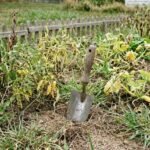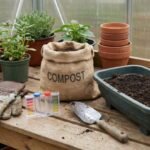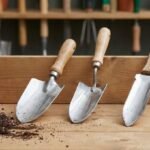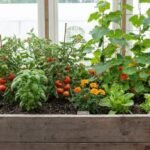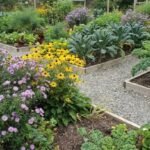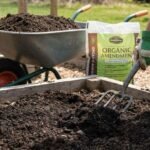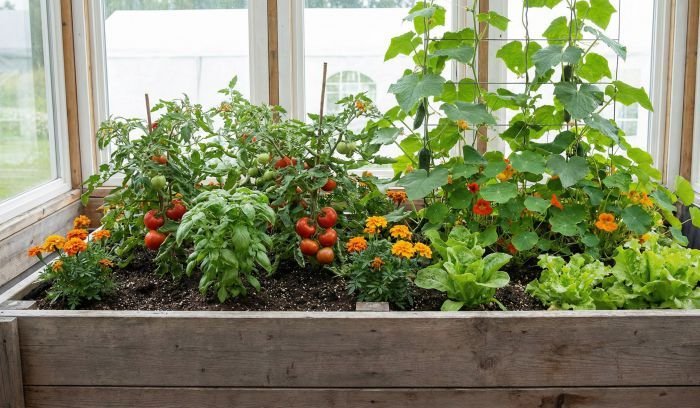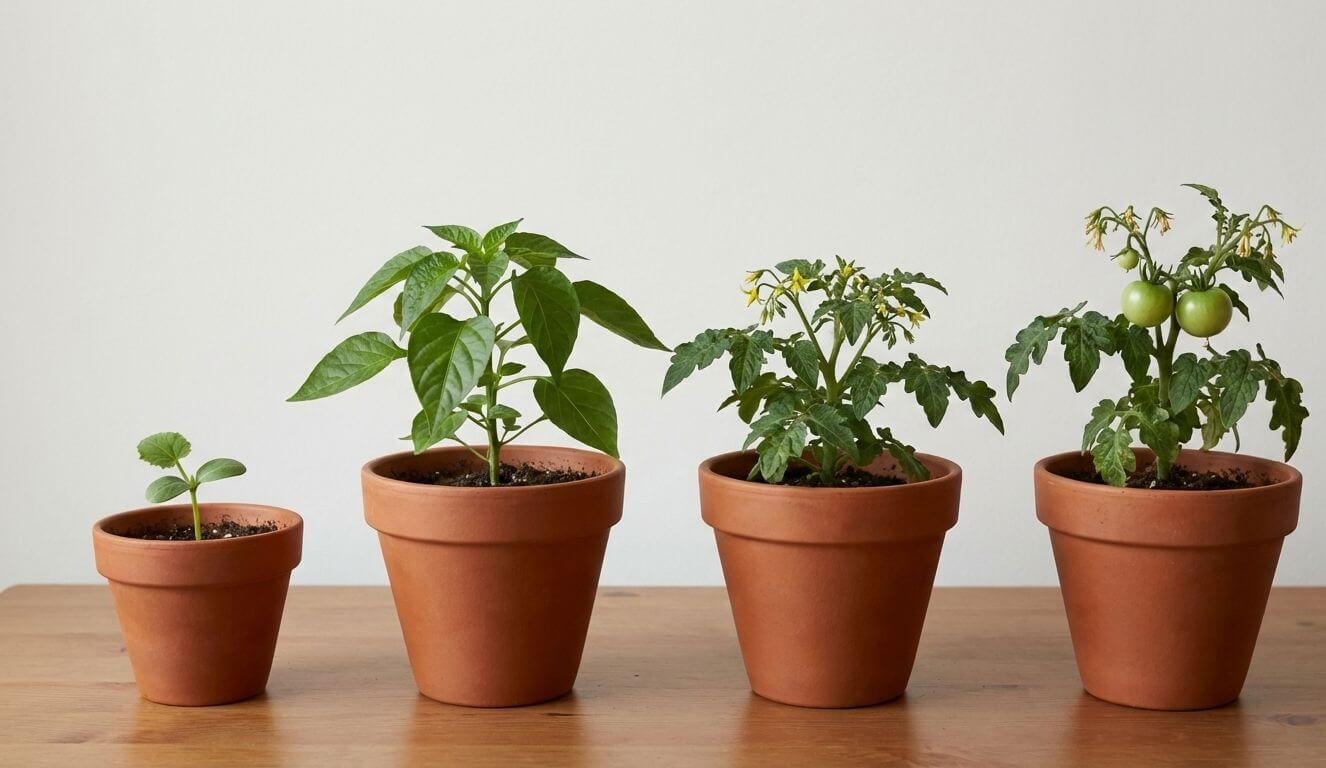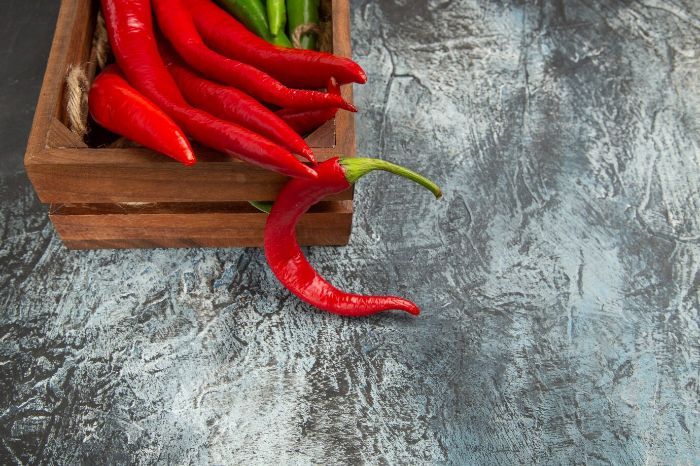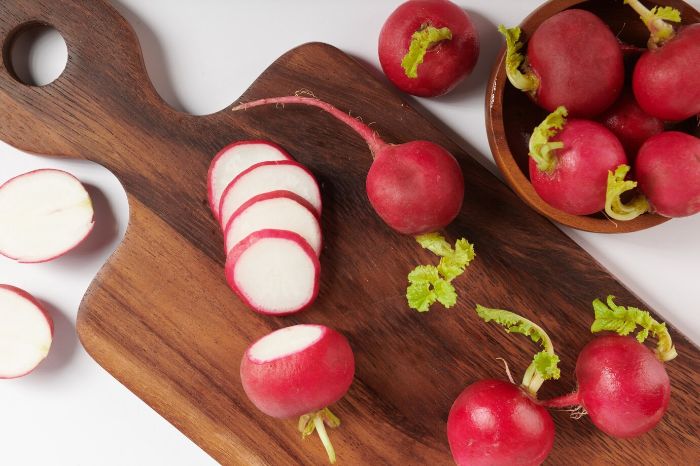Ever thought about a secret to grow tasty peppers and keep bugs away? There is! It’s about basil and peppers working together. They help each other grow and offer many benefits for your garden.
Companion planting means growing certain plants together for better results. Basil and peppers are a great pair. They make your garden better and cut down on bug sprays.
This article will show you how basil and peppers work well together. We’ll talk about how basil makes peppers taste better and keeps bugs away. Plus, we’ll give you tips on growing them together. Get ready to learn about this great gardening team!
Key Takeaways:
- Companion planting involves growing specific plants together for mutual benefits.
- Basil and peppers form an ideal companion planting combination.
- Basil enhances the flavor of peppers, resulting in more delicious culinary creations.
- Basil also acts as a natural insect repellent, protecting pepper plants from harmful pests.
- Growing basil and peppers together requires attention to ideal growing conditions and planting techniques.
Table of Contents
The Benefits of Companion Planting
Companion planting helps plants grow better, fight pests, and improve soil health. It also makes crops more productive. Basil and peppers work great together, offering big benefits when planted side by side.
What is Companion Planting?
It’s about putting different plants close together to help each other grow, also known as companion planting. By picking the right plants, gardeners create a balanced garden. This way, each plant gets the most out of its space.
Why Basil and Peppers Make a Great Pair
Basil and peppers are perfect companions. They help each other grow and stay healthy. They also keep pests away, making the garden better for everyone.
“When grown together, basil and peppers create a synergy that results in healthier plants and more bountiful harvests,” says renowned horticulturist Dr. Jane Thompson.
Basil planted near peppers can enhance their taste and overall vigor, a benefit tied to certain basil varieties. Basil’s scent in the air improves pepper flavor and keeps pests away. It also hides the pepper scent from pests.
Basil keeps pests away from peppers, making the garden safer. This teamwork means less use of harmful chemicals. It’s good for the planet and the garden.
Basil and peppers also taste great together in food. Basil’s fresh smell makes pepper dishes even better. This makes them a favorite in kitchens everywhere.
Planting basil and peppers together is a smart move. It helps both plants and makes food taste amazing. It’s a great way for gardeners to grow delicious food without harming the environment.
Enhancing Flavor with Basil and Peppers
Flavor is key in cooking. The right mix of taste and smell can make a dish amazing. Basil and peppers are great together for this. They make many dishes taste better when grown and used together.
How Basil Improves the Taste of Peppers
Basil’s unique smell and taste are perfect with peppers. The oils in basil mix well with peppers, making them taste better. This mix adds depth and complexity to peppers.
Basil and peppers work well together. Basil’s sweet taste goes well with peppers’ heat and earthy taste. This mix makes a dish unforgettable.
Scientific Insights into Flavor Enhancement
Scientists are interested in how basil and peppers taste better together. They’ve done many studies on this. These studies show that basil really does make peppers taste better.
These studies found that basil and peppers work together to taste better. Basil’s compounds interact with our taste buds, making peppers taste stronger and more balanced.
Even though we’re still learning, chefs and home cooks love using basil and peppers. They use this mix to make dishes that are a treat for the senses.

We know that basil makes peppers taste better, and science backs it up. Using fresh basil leaves or basil oil in dishes can elevate their flavor. Basil and peppers are a great team in the kitchen.
Repelling Harmful Insects
Pepper plants are often attacked by pests. These pests can slow down their growth and lower their yield. To keep your pepper plants healthy, you need good pest control methods.
Insects That Affect Pepper Plants
It’s important to know which insects can harm pepper plants. Aphids, thrips, hornworms, and mites are common pests. They can damage the leaves, stems, and fruits, causing stunted growth and less produce.
How Basil Acts as a Natural Insect Repellent
Basil naturally deters unwanted bugs, making it a valuable ally in natural pest control methods. When grown with peppers, it keeps pests away. The strong smell and oils in basil make pepper plants less appealing to insects, lowering the chance of infestations.
Mechanisms of Insect Repellence
Basil’s bug-repelling traits come from certain compounds in its leaves and stems. These include citronellol, linalool, and eugenol. These substances mess with pests’ senses, making it hard for them to find pepper plants. This natural defense helps protect your pepper crops.
Additional Benefits of Basil’s Insect Repelling Properties
Basil does more than just keep pests away from peppers. It also draws in helpful bees and butterflies, which helps pollinate the peppers. Growing basil with peppers also improves the soil, making the plants healthier and stronger.
Growing Basil and Peppers Together
To grow basil and peppers well, they need the right conditions. This guide will cover soil, sunlight, watering, planting, and how to plant them together. These tips will help your garden flourish.
Ideal Growing Conditions
Basil and peppers do best in soil that drains well and has a pH of 6.0 to 7.0. Add compost to the soil to make it richer and drain better. This also helps both plants grow strong.
Soil Requirements
The soil should be loamy and full of organic matter. This gives basil and peppers the nutrients they need. It also keeps the soil moist but not too wet, preventing root rot.
Sunlight and Watering Needs
Basil and peppers need full sun for 6-8 hours a day. Choose a spot in your garden that gets a lot of sunlight. This helps them grow big and taste great. Water them well but don’t soak the soil. Water deeply and less often, especially when it’s dry.
Planting Techniques
There are two ways to plant basil and peppers together. Start seeds indoors and move them outside when it’s safe. Or, plant seeds directly in the garden when the soil is warm and frost-free.
Seed Starting and Transplanting
Start seeds indoors in a special mix. Keep the soil moist and warm until they sprout. Move seedlings to pots or the garden when they have a few leaves. Be gentle when you transplant to protect their roots.
Spacing and Companion Planting Tips
Give basil and peppers enough space to grow. This lets air move around them, keeping them healthy. Planting them together helps. Basil keeps pests away from peppers and makes them taste better.

Maintaining a Healthy Garden
To keep a healthy garden with basil and peppers, use good pest management and organic pest control.
Pest Management
Keep an eye on your plants to spot pests early. This way, you can act fast to stop infestations.
Organic Solutions for Pest Control
Choose organic pest control for your garden’s health and the ecosystem’s well-being. Use beneficial insects like ladybugs and lacewings to eat pests and protect your garden. Make insecticidal soaps with neem oil and garlic to fight pests safely.
Crop rotation also helps stop pests from coming back. It breaks the pest cycle.
Fertilizing and Mulching
Give basil and peppers the right food to grow well. Use organic stuff like compost or manure for fertilizer. Mulching keeps soil moist and stops weeds. It also protects plants from diseases.
Best Practices for Fertilizing Basil and Peppers
- Follow the right schedule for feeding basil and peppers.
- Don’t overfeed, as it can make the plants too big and taste bad.
- Spread fertilizers evenly and keep them away from the plants.
- Water your plants after feeding to help the nutrients get to the roots.
The Role of Mulch in Companion Planting
Mulch is key with basil and peppers. It stops weeds, helps with water and nutrients, and keeps soil right. Use organic mulch like straw, wood chips, or compost for these benefits.
Harvesting and Using Basil and Peppers
Knowing when and how to harvest basil and peppers is key to enjoying their flavors. We’ll look at signs of readiness, harvesting tips, and how to use these ingredients.
Signs of Readiness for Harvest
For basil, look for leaves that are bright green, full, and smell good. Peppers are ready when they’re big and colorful, depending on the type. Remember, you can pick basil leaves anytime. Peppers need time to grow and ripen.
Proper Harvesting Techniques
To harvest basil, gently take off leaves close to the stem. This keeps them fresh and doesn’t hurt the plant. For peppers, cut them off with clean scissors or pruners, leaving a bit of stem.
Culinary Uses
Basil and peppers are great in many dishes worldwide. Basil adds a fresh, sweet taste to pesto, salads, and more. Peppers bring sweetness and heat to salsas, stir-fries, and pasta.
Recipes that Combine Basil and Peppers
Using basil and peppers together makes great flavors. For a fresh spin, pair tomatoes, basil, and sweet peppers in a Caprese salad – similar to how marigolds shield tomato plants from pests. Or, make a spicy Thai basil chicken stir-fry with hot peppers and basil. There are many ways to mix these ingredients.
Preserving Basil and Peppers
If you have a lot of basil and peppers, preserving them lets you enjoy them all year. Dry basil by hanging it upside down or using a dehydrator. Freeze, pickle, or make sauces with peppers. Pick the best way to store them for you.
Conclusion
Basil and peppers together in the garden bring many benefits. They make the flavors better and keep insects away naturally. This way, both plants grow healthier and produce more.
Planting basil with peppers makes the peppers taste better. Basil also keeps insects away from the peppers. This means you use fewer chemicals to fight pests. It’s good for the planet.
For basil and pepper plants to do well, the garden must be healthy. Gardeners should use good growing methods and watch for pests. Using organic pest control and fertilizing helps too. It gives plants what they need and keeps the soil moist.
When basil and peppers are ready, they can be used in many tasty dishes. You can make sauces, salads, and more with them. You can also dry or freeze them for later.
In short, basil and peppers are great together in the garden. They make food taste better and keep pests away. By following this guide, gardeners can make the most of these plants. They’ll have a garden that’s full of life and flavor.
FAQ
What is companion planting?
Companion planting means growing certain plants together for mutual benefits. It helps plants support and protect each other. This also improves soil nutrients, controls pests, and boosts growth and production.
Why do basil and peppers make a great pair for companion planting?
Basil and peppers work well together because basil makes peppers taste better. It also keeps pests away. The basil’s smell hides the pepper’s scent from pests.
How does basil improve the taste of peppers?
Basil’s aromatic compounds mix with peppers, making them taste better. These oils add depth to the pepper’s flavor. This creates a tasty balance.
What are the mechanisms of basil’s insect repellence?
Basil’s strong smell and oils keep insects away from peppers. These oils mess with pests’ senses, making them hard to find the peppers. Basil also draws in good bugs and helps the soil.
What are the ideal growing conditions for basil and peppers?
Basil and peppers do well in soil that drains well and has a pH of 6.0 to 7.0. They need full sun for 6-8 hours a day and regular watering. Make sure they have enough space for air and growth.
How can I maintain a healthy garden when growing basil and peppers together?
Keep your garden healthy by managing pests with organic methods. Watch for pests, add good bugs, and use soaps or crop rotation. Feed basil and peppers well, mulch to keep nutrients in, and control weeds.
When and how should I harvest basil and peppers?
Harvest basil and peppers when they’re the right size and color. Use sharp tools to avoid hurting the plants. Enjoy them in many recipes. You can also dry, freeze, or pickle them for later.
